14 Times South Park Showed Us Who the Villains Really Are
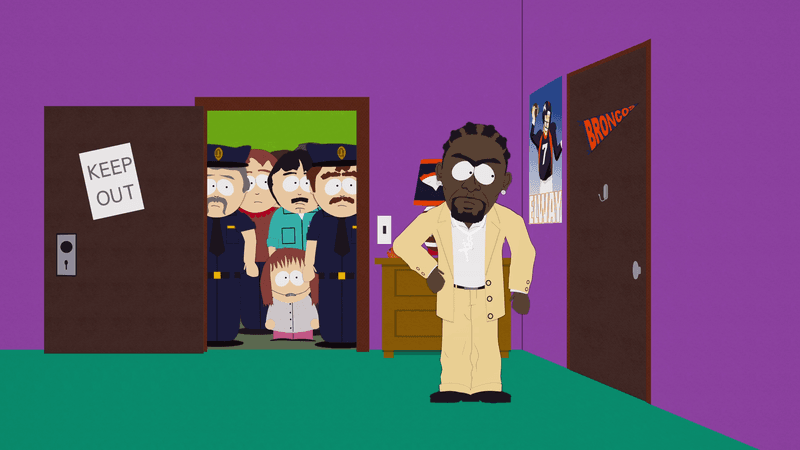
South Park, a show renowned for its satirical and unapologetic humor, has a unique ability to spotlight societal villains through absurdity and wit. Over the years, Trey Parker and Matt Stone have not only entertained audiences but also provided critical commentary on human behavior, consumer culture, and hypocrisy. From the twisted antics of Eric Cartman to critiques on celebrity culture, South Park challenges viewers to reconsider who the true antagonists are. Each episode offers a mirror reflecting societal flaws, urging us to laugh while introspecting. The series’ genius lies in its ability to cloak profound insights within outlandish storylines, making its messages both impactful and unforgettable.
1. Cartman in “Scott Tenorman Must Die”

In “Scott Tenorman Must Die,” Eric Cartman showcases the extremes of manipulation and cruelty. With a sinister plan to get back at his nemesis, Scott Tenorman, Cartman orchestrates a series of events that culminate in a chilling act of revenge. His meticulous plotting and lack of remorse highlight the darker aspects of human nature.
The episode serves as a stark reminder of how unchecked desires for vengeance can lead to horrifying outcomes. Cartman’s actions reflect a merciless mindset that is both shocking and thought-provoking. The narrative explores themes of power, control, and the consequences of unchecked animosity.
2. Tom Cruise & Celebrity Culture in “Trapped in the Closet”
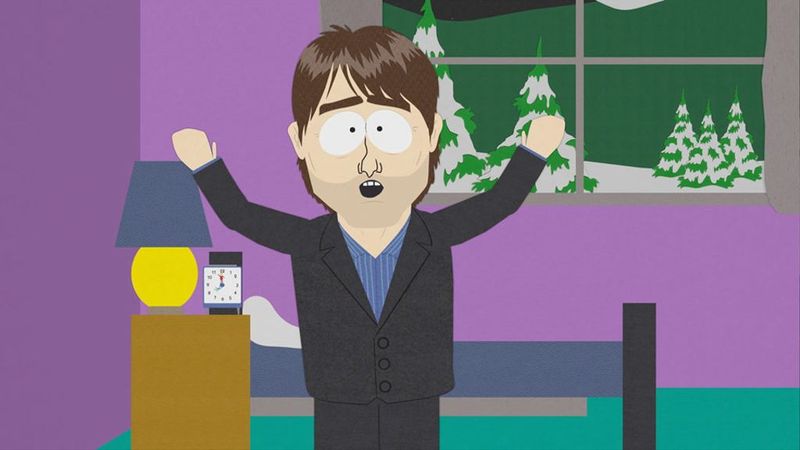
“Trapped in the Closet” delivers a sharp critique of celebrity culture, using Tom Cruise as a central figure. The episode navigates the absurdities of fame, ego, and the cult-like devotion surrounding certain stars.
By placing Cruise in a ridiculous scenario, South Park exposes the superficiality and inflated self-importance often found in the world of celebrities. The narrative cleverly dismantles the facade of glamour, revealing the vulnerability and desperation that can lie beneath. Through humor and satire, the episode encourages viewers to question the idolatry and blind adoration often associated with celebrity worship.
3. The Wall-Mart Shoppers in “Something Wall-Mart This Way Comes”
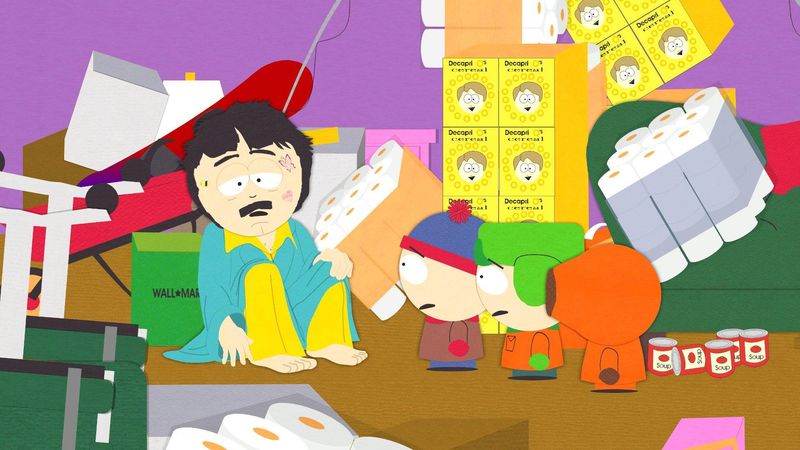
In “Something Wall-Mart This Way Comes,” the show warns against blind consumerism through a fictionalized version of a major retail store. The townspeople become enslaved to their shopping desires, illustrating how consumer culture can feed destructive systems.
The episode portrays the store as a seemingly invincible entity, dictating the lives of those it entices. Through exaggerated scenarios, South Park critiques the loss of individuality and autonomy in the face of rampant materialism. It serves as a cautionary tale about the power of corporations and the ease with which people can become unwitting participants in their own exploitation.
4. The “Vote or Die” Hype in “Douche and Turd”
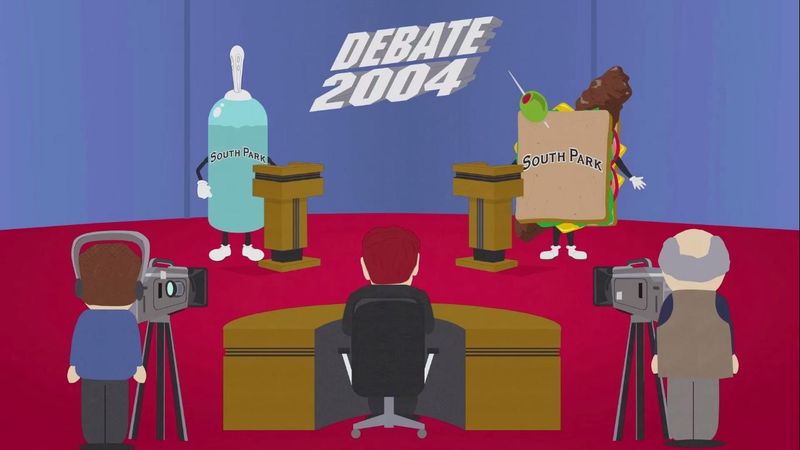
“Douche and Turd” satirizes the political process by presenting citizens with only terrible options. The “Vote or Die” campaign emphasizes how political rhetoric can reduce important decisions to absurdity. South Park critiques the superficiality of political engagement and the pressure to choose between equally undesirable candidates.
By amplifying the ridiculousness of election campaigns, the episode prompts viewers to reflect on the quality of democratic choices available. It challenges the notion of meaningful participation when the alternatives feel equally flawed. The narrative underscores the importance of critical thinking and the need for genuine political reform.
5. The Internet Trolls in “Skankhunt42”
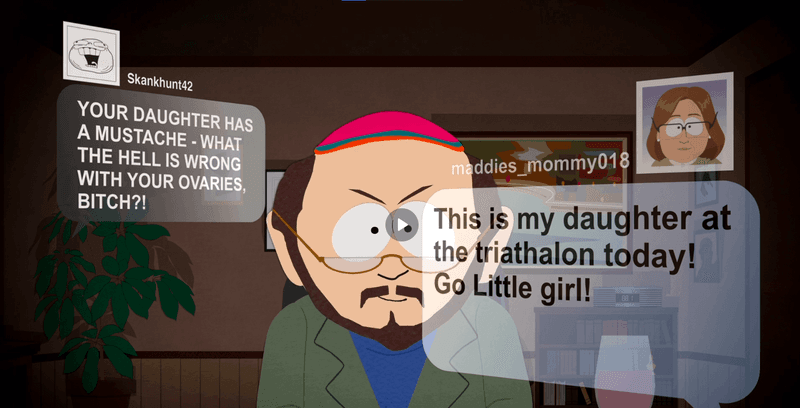
In “Skankhunt42,” internet trolls take center stage, highlighting the ugliness of online harassment. The episode follows Gerald Broflovski as he engages in anonymous trolling, causing chaos and pain in the real world. South Park delves into the motivations behind online cruelty, exposing the disconnect between virtual actions and their real-life consequences.
The narrative explores the impact of anonymity on human behavior, revealing how it can amplify the worst aspects of humanity. Through humor and critique, the episode urges viewers to consider the ethics of online communication and the responsibility that comes with digital interactions.
6. The Parents in “The Wacky Molestation Adventure”
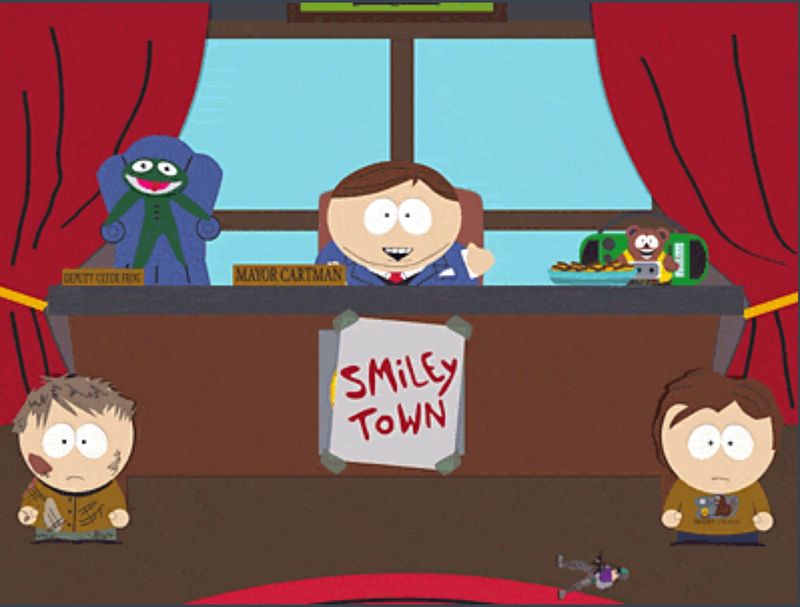
“The Wacky Molestation Adventure” paints a dystopian picture where adults abandon their responsibilities for selfish desires. The town’s children, left to their own devices, create a society mimicking the grown-ups they no longer have. South Park uses this scenario to critique parental irresponsibility and the consequences of neglect.
By turning the world upside down, the episode exposes the fragile nature of societal norms and the importance of guidance and accountability. It serves as a reminder of the pivotal role adults play in shaping the next generation and the dangers of prioritizing personal whims over duty.
7. The Media in “Quest for Ratings”
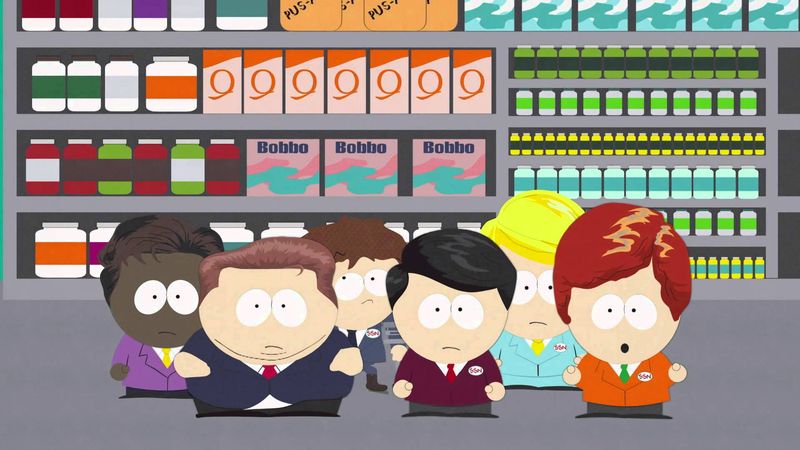
In “Quest for Ratings,” South Park takes aim at media manipulation and the pursuit of sensationalism. The episode depicts the news industry as a frenzy of clickbait and shallow narratives, driven by the desire for higher ratings. Through exaggerated scenarios, the show critiques the erosion of journalistic integrity and the impact of misleading information on public perception.
It highlights how media can shape reality, often prioritizing profit over truth. The narrative encourages viewers to question the reliability of news sources and consider the broader implications of a media landscape where sensationalism triumphs over substance.
8. PC Principal in “Stunning and Brave”

“Stunning and Brave” introduces PC Principal, a character embodying the overzealous enforcement of political correctness. The episode critiques the authoritarian approach to ensuring inclusivity, where well-intentioned actions become oppressive. Through humor, South Park explores the balance between promoting respect and stifling freedom.
PC Principal’s rigid adherence to politically correct principles exposes the potential pitfalls of excessive regulation. The narrative challenges viewers to find a middle ground where empathy coexists with open dialogue. By satirizing this modern phenomenon, the show underscores the importance of context and understanding in discussions about sensitivity and inclusivity.
9. Eric Cartman in “The Death of Eric Cartman”

“The Death of Eric Cartman” offers a glimpse into how selfishness and cruelty can alienate individuals. Believing he has died, Cartman experiences life as if he were a ghost, ignored and forgotten by friends. His journey highlights the consequences of his past actions and the importance of empathy and connection.
South Park uses Cartman’s isolation to explore themes of redemption and the human need for companionship. The episode serves as a reminder that relationships are fragile and can be easily damaged by thoughtless actions. It encourages viewers to reflect on the value of kindness and the impact of their behavior on others.
10. The Ads in “Sponsored Content”
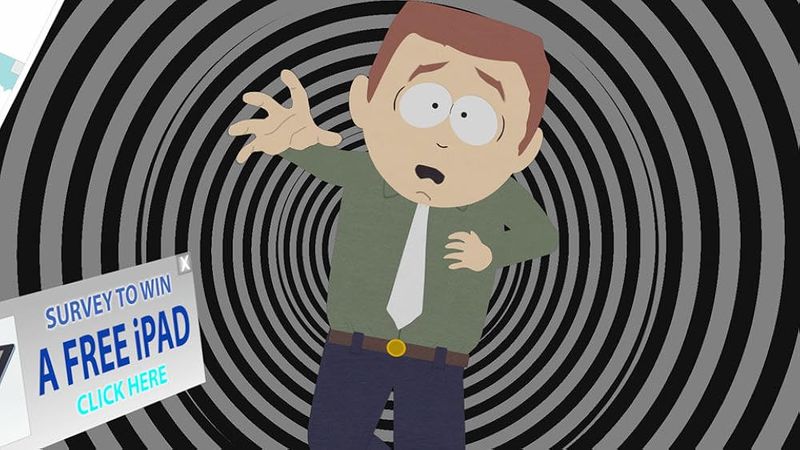
In “Sponsored Content,” South Park addresses the deceptive nature of modern advertising. The episode portrays ads as insidious entities, cleverly disguised as truthful journalism. By blurring the lines between news and promotion, the show critiques how advertisements manipulate public perception.
The narrative explores the ethical dilemmas faced by media outlets in an age where sponsorship can undermine credibility. South Park urges viewers to discern between genuine information and persuasive tactics masquerading as facts. The episode highlights the importance of media literacy and the need for transparency in the relationship between content producers and their audience.
11. The Cult Leaders in “Super Best Friends”
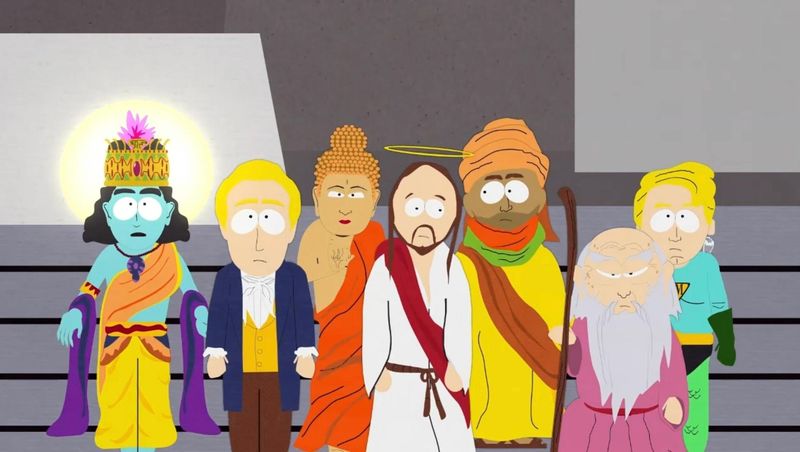
“Super Best Friends” mocks manipulative cult leaders who exploit faith for personal gain. The episode features a group of iconic religious figures banding together to confront the dangers posed by a charismatic leader. South Park satirizes the vulnerability of individuals drawn to promises of salvation and enlightenment.
Through humor and exaggeration, the show critiques the tactics used by those who prey on belief systems. It highlights the importance of critical thinking and skepticism in matters of faith. The narrative encourages viewers to question authority and remain vigilant against those who seek power through exploitation.
12. The Police in “The Pandemic Special”
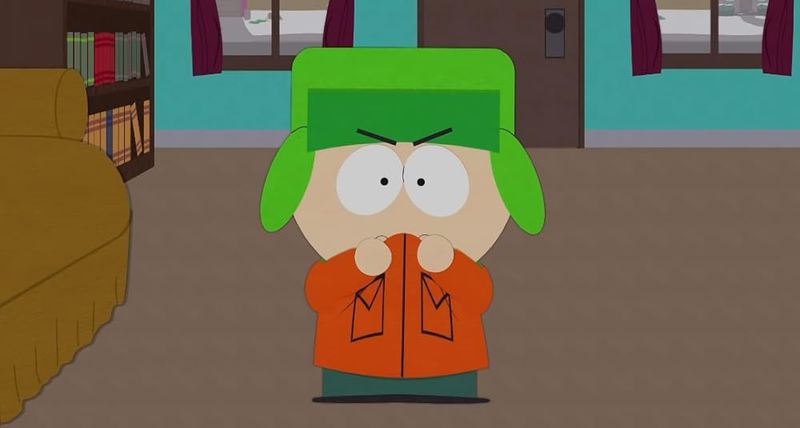
In “The Pandemic Special,” South Park examines the misuse of authority during crises. The police, depicted as heavy-handed and overzealous, become symbols of control rather than protection. Through satirical exaggeration, the episode critiques the militarization of law enforcement and the potential for abuse of power.
The narrative explores the tension between maintaining order and respecting civil liberties. By highlighting the absurdity of excessive force, South Park prompts viewers to reflect on the responsibilities of those in positions of authority. The episode underscores the need for accountability and transparency in policing, especially during times of societal upheaval.
13. The Anti-Vaxxers in “South ParQ Vaccination Special”
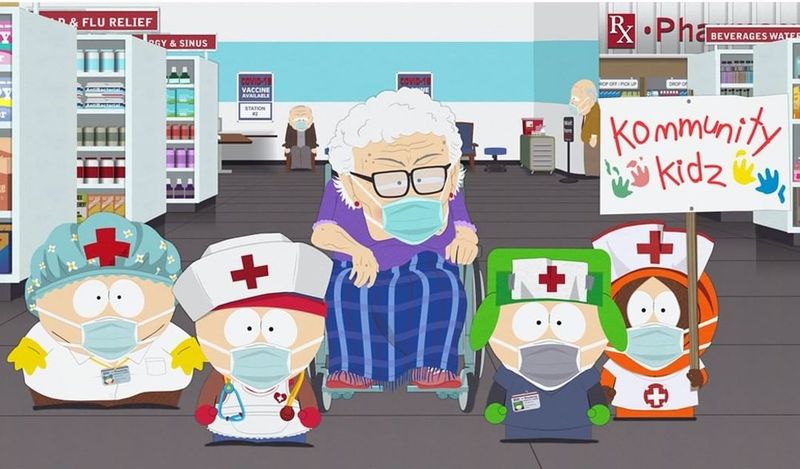
“South ParQ Vaccination Special” tackles the contentious issue of vaccine misinformation. The episode portrays anti-vaxxers as misguided and paranoid, spreading fear during a critical time. South Park uses its signature humor to critique the spread of false information and the consequences of rejecting scientific consensus.
Through exaggerated scenarios, the show highlights the dangers of prioritizing personal beliefs over public health. The narrative encourages viewers to trust evidence-based medicine and consider the broader impact of their choices. By satirizing the anti-vaccine movement, South Park emphasizes the importance of informed decision-making in safeguarding community well-being.
14. The Townsfolk in “It Hits the Fan”
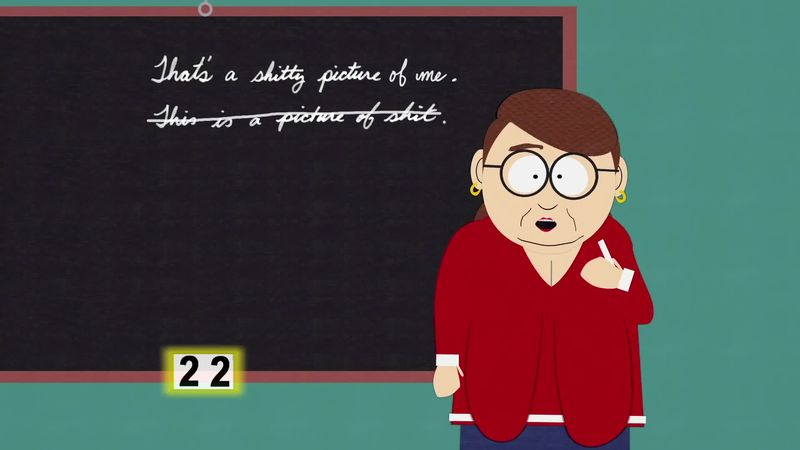
In “It Hits the Fan,” South Park explores the absurdity of collective overreaction. The episode portrays townsfolk as hypocritical and prone to hysteria when confronted with a minor incident. Through humor and exaggeration, the show critiques the ease with which people succumb to mob mentality.
The narrative highlights the dangers of groupthink and the loss of individual reasoning in the face of perceived threats. By satirizing societal tendencies to amplify trivial matters, South Park encourages viewers to maintain perspective and resist the allure of exaggerated reactions. The episode serves as a cautionary tale about the power of words and the fragility of rational discourse.

Comments
Loading…